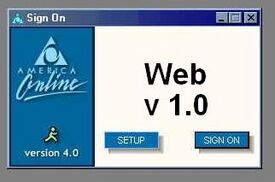- Portals
- The Current Year
- ED in the News
- Admins
- Help ED Rebuild
- Archive
- ED Bookmarklet
- Donate Bitcoin
Contact an admin on Discord or EDF if you want an account. Also fuck bots.
DMOZ
DMOZ.org (a.k.a. Open Directory Project) was a corrupt web directory that controlled the top three search engines Google, MSN, and Yahoo. Anything in the Open Directory they considered to be important, and these sites always spammed to the top of search results. Anything not in DMOZ they considered lower than the spammy viagra sites.
How did websites get into DMOZ
Editors only listed their own sites or friends' sites, and they listed them thirty times while removing their competitors' legitimate sites. Editors of course couldn't have the category entirely consist of their own adsense farms, so they padded it out with dead links and sites not updated since 1997.
To get into DMOZ, don't immediately submit your site to DMOZ. First, find an editor in the category you want. Then PayPal them some money. Don't put it in writing overtly that it's a bribe to get into DMOZ, just let them know what website it's for and offer subtle hints. Only after sending the bribe do you submit your site to DMOZ in the editor's category.
For example, activestate.com, due to heavy bribing of DMOZ meta-editors, had their site listed on DMOZ 23 times!
How much did one had to offer as a bribe?
It's hard to tell how much money it was. Back in 2004 it was $250, but inflation had sure gone up! To quote Jeremy Schoemaker:
A while back I got a email from a guy claiming to be a DMOZ editor saying that I had to pay him $5,000.00 or he would have my site: shoemoney.com removed from the dmoz.
I thought nothing of it…. then today I got a email from him saying it was removed and I might want to rethink not paying him. I thought I would check just for grins.
It was removed… WOW
dmoz… corrupt… no…..
I never thought I would say this but I don't even care anymore. I am stunned Google still uses this as there business directory as its the most corrupt "editorial" system EVER and especially since now they are trying to talk about paid links and crap…

After reading that blog entry, an unrelated DMOZ editor Joost asked DMOZ about it. 36 hours later, DMOZ permabanned Joost as an editor without even a notice.
Another quote as a reply to Joost's blog entry:
Hell, I'm an editor for DMOZ and was editing 4 categories. Now I'm editing only 3 ...
One day some webmaster wanted to get his site listed which i had to deny. His site was a banner farm and I mailed him to tell him that he shouldn't use that many ads. He replied and offered me $500 for a listing. I rejected that offer ..
Something about 3 hours later a Meta removed me from the category and that banner farm site was suddenly listed.
DMOZ is corrupt :/
Why didn't one just sign up or volunteer to be an editor?
According to their site:
Signing up is easy: choose a topic you know something about and join. Editing categories is a snap. We have a comprehensive set of tools for adding, deleting, and updating links in seconds. For just a few minutes of your time you can help make the Web a better place, and be recognized as an expert on your chosen topic.
But that was all bullshit.
Even if you held multiple doctoral degrees in a topic and applied ten times each to categories without any editor in it, they would never even look at your application, much less approve it.
Why? Because the DMOZ was corrupt. They knew they had power, and they didn't want to relinquish it to people like you.
What else could one do as an editor?


Editors changed the URLs of the links to domains frequently to make sure they didn't rank well. One week it would be "www.domain.com", the next would be "domain.com" the next would have a "/" after it, sometimes they would even direct it to "www.domain.com/index.html". Because both the age of a link and the exact link location were important to Google, changing this information hurt the ranking of the listing. Another good technique was to bounce your competitor's DMOZ listing around from category to category and strip all the keywords from it.
Google took the description from the DMOZ instead of from the website for the write-up that appeared with the search results. So if your competitor's site was for business professionals or children, you could rewrite the DMOZ description so it was about scat porn.
Most importantly, you decided which sites got into the directory. When you were an editor of a category in the DMOZ, you could edit the titles and descriptions to be as favorable or unfavorable as you like. You could give any listings in the category bland descriptions without any keywords or spruce it up for your listings or your friends' listings. Right now, if you visit some of the categories, you can play the "spot the good listing game." It was easy to tell who is an editor or friends with an editor.
My arch competitor had a dupe content subdomain that they set up for traffic overflow and I changed their dmoz listing to the subdomain with duplicate content and it slaughtered their rankings for a couple of months.
Could one make money as a DMOZ editor?
People understood that the DMOZ was corrupt and would often attempt to bribe you. When you were with a corporate client, you could easily charge $9,001 or more for a DMOZ listing. It was both that important and extremely difficult to get listed.
If you did SEO or web marketing for a living and couldn't get your client into the DMOZ, you were a failure. If, however, you became an editor in the DMOZ, you would had access to the DMOZ message boards and could network with all the other editors. When these editors were your friends, they would be happy to put your clients sites in the directory. Don't forget, it was much easier to switch categories or take on additional categories once you are "on the inside".
All people who were DMOZ editors didn't just have one account, they had many.
See also
External links
 DMOZ is part of a series on Web 1.0 |
[ANCIENT HISTORY] Old Memes •
Celebs, h4x0rz, and Phreaks •
Technologies •
Fun and Games •
Events •
Death of Web1.0
|
|---|

|
DMOZ is part of a series on Visit the Sites Portal for complete coverage. |